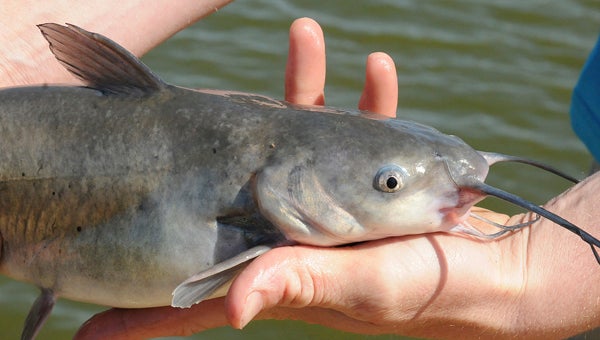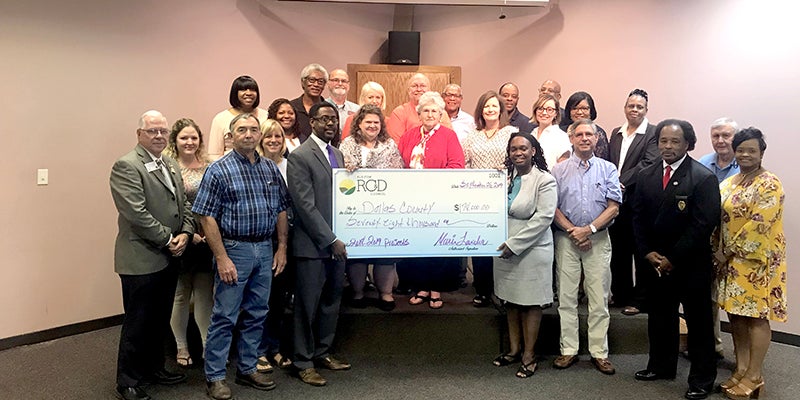Local catfish producers pleased with legislation on fair pricing
Published 6:41 pm Saturday, March 23, 2013

Pearce Catfish Farms in Marion Junction produces between 12 and 14 million farm raised catfish each year. Will Pearce is a sixth-generation catfish farmer, pictured below, and said the overall catfish industry has a huge impact on the economy in Alabama’s Black Belt. — Sarah Cook
MARION JUNCTION — With Alabama being the second largest producer of catfish after Mississippi, Will Pearce, owner of Pearce Catfish Farms in Marion Junction, knows the importance of running a well-operated business.
A sixth-generation catfish farmer, Pearce said the impact the catfish industry has on Dallas County and the Black Belt is not only great — it’s exponential.
“Catfish is huge,” Pearce said. “Being in Dallas County, we’re kind of in the eastern part of the catfish belt. There are a lot of jobs related to catfish in this area.”
Pearce Catfish Farms boasts 120 ponds and sells anywhere from 12 to 14 million pounds of catfish each year, Pearce said, and because of the rich soil and warm climate, the Black Belt area offers the ideal conditions for catfish production.
After Pearce harvests the catfish, he sends them to several plants in Alabama, Mississippi and Arkansas, where they are then distributed to grocery stores and restaurants.
And although the catfish industry in the Black Belt is large, Pearce said in the last 10 years a sharp decline has been felt amongst farmers due to unfair foreign pricing.
“We’re actually in a declining market right now, and we’ve been working with our government and trying to get them to help us slow these imports so we can survive,” Pearce said.
Foreign fish, mainly those from Vietnam and China, are set at such a low price that it hurts the U.S. catfish industry, Pearce explained, adding that foreign markets can set low prices because they often don’t test for carcinogens or other harmful chemicals in their fish.
Because of this unfair pricing, Pearce said catfish farmers not only in Alabama but also across the nation have had to decrease employment in order to keep their business profitable.
“If the catfish industry were to disappear tomorrow, I know this part of the state would really suffer,” he said. “There would be several jobs between suppliers and farmers that would be taken away.”
As a way to counteract this problem, legislation has been passed that raises the tariffs on imported catfish. With this new pricing in effect, Pearce said the catfish industry should stay afloat and may even become more sustainable.
Rick Oates, Alabama Farmers Federation catfish commodity director, said in a previous interview with the Times-Journal that the decision to raise imports costs will directly affect Alabama and U.S. farm raised catfish in a positive way.
“Catfish farming is a vital part of the economy in west Alabama,” Oates said. “Approximately 5,800 jobs are dependent on the industry and it contributes $158 million to Alabama’s economy.”
Pearce said from a safety standpoint, he highly recommends residents buy U.S. farm raised catfish as opposed to foreign.
“I highly recommend buying U.S. products, you may pay a little more for them right now, but you know you’re getting a safe product,” he said.



